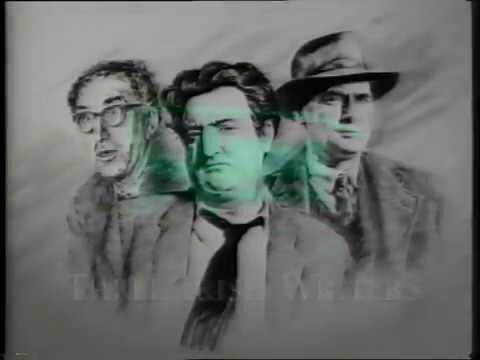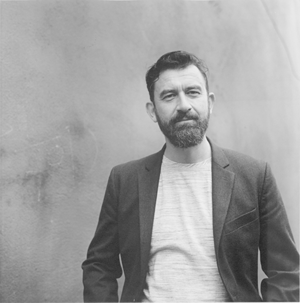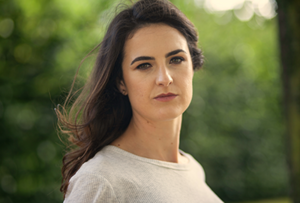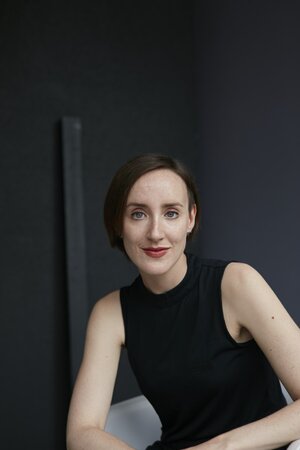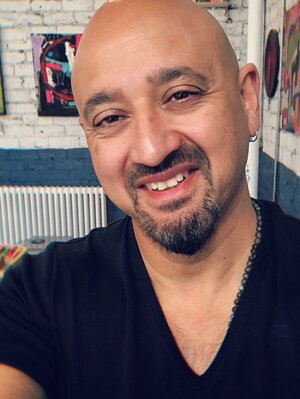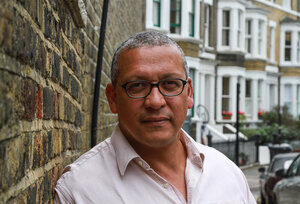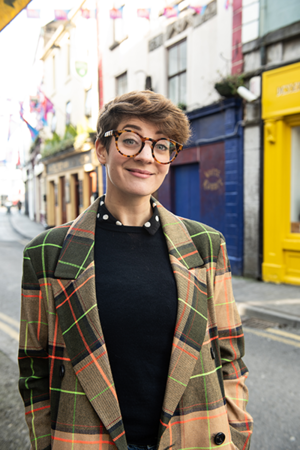It has been said that the English hoard words like misers and the Irish spend them like sailors. This Arena film presents three great Irish masters of the English language, Flann O'Brien, Patrick Kavanagh and Brendan Behan. Anthony Cronin, poet, friend and fellow drinker, recalls their genius and their wild exploits in Dublin.
First shown in 1991, Arena’s Three Irish Writers is a unique look at the social history of Dublin and three of its most infamous writers. A classic from the BBC archive, it offers a rare glimpse of an era long gone, when culture was part of the everyday and the everyday an intrinsic part of culture.
Cúirt International Festival of Literature at Galway Arts Centre screened this memorable Arena film, produced by Kay Meynell and Rosemary Wilton. Commenting on the film’s portrait of three brilliant writers and the times they lived in are four contemporary Irish authors: Jaki McCarrick, Paul McVeigh, Ciara Ní É and Jessica Traynor, who you can still watch here. Enjoy new poems inspired by the film from Belfast-Jamaican poet Raquel McKee and Irish-Indian British poet John Siddique, and learn how to start your own personal writing journey with a masterclass from acclaimed author Gabriel Gbadamosi.
ARENA: THREE IRISH WRITERS
Flann O’Brien, Patrick Kavanagh and Brendan Behan were all exponents of a particular blend of alcohol and eloquence.
Theirs was an Ireland emerging from literally centuries of oppression by the British. In 1922, Ireland achieved its independence, but as late as 1949 links remained with the Commonwealth. Ireland was impoverished in the 50s but the three writers were heirs to one very rich tradition — the Irish contribution to English Literature, as great, if not greater, than that of the English themselves. Congreve, Swift, Sheridan, Wilde, Yeats, Shaw … the list goes on and on.
However, all those literary figures were from the patrician, protestant class. The three writers featured on Arena were of an altogether different cut. Behan was a working-class Dubliner with deep republican convictions; Kavanagh was a smallholding farmer in County Monaghan; and O’Brien, real name Brian O’Nolan, was a reluctant (to say the least) civil servant.
They were all devotees of James Joyce, the first great published Irish writer born and raised a Catholic. Joyce was not enamoured of religion, but anyone who has read his Portrait of the Artist As A Young Man will see that a hard-line Catholic upbringing ran through his bones. The film was the brainchild of Anthony Cronin, cultural adviser to the former Taoiseach Charles Haughey. A poet himself and friend and contemporary of all three writers, Cronin contended that they constituted a new, culturally Catholic, post–Joycean literary movement.
Behan, O’Brien and Kavanagh inhabited a kind of impecunious bohemia in Dublin in the 1950s. Theirs was a long way from the bohemia running concurrently on the Left Bank in Paris or the turbo-charged world of the Beats in the USA. It was fuelled by words, song and stout; and their work was as universal and magical as that of Albert Camus or Jack Kerouac.
Directors Kate Meynell and Rosemary Wilton assembled a fabulous array of witnesses, from O’Brien’s coolly authoritative colleagues on The Irish Times to the working-class locals on Dublin’s Baggot Street, who recalled the fathomless eccentricity of Kavanagh. Kavanagh and O’Brien remained in Ireland; Behan, like so many before him, left for the UK and then New York. He became a star on both sides of the Atlantic, a reliable source for the media of outrage and mischief, always made forgivable by his effortless wit.
Central to the film is the special richesse of the film archive of Ireland’s state broadcaster RTE. There’s Behan lacerating Ireland’s leading TV interviewer, a po-faced Eamonn Andrews; O’Brien denouncing Saint Augustine from the fastness of the Martello Tower in Joyce’s Ulysses; Kavanagh, in his fields in Monaghan, calmly cradling a live kingfisher in the palm of his hand.
They died within three years of each other, all in Dublin – Behan in 1964, O’Brien ’66, Kavanagh ’67, so essentially of their time – but as Behan would say, ‘Death, where is thy sting a ling a ling?’
Their legend lives on.
Anthony Wall
21 October 2020
YOUR LOCAL ARENA: RESPONDING TO Three Irish Writers
Watch acclaimed poet and dramaturg Jessica Traynor, award-winning playwright and author Jaki McCarrick, Polari First Novel winner Paul McVeigh and Ciara Ní É, spoken word artist, activist and broadcaster, respond to the Arena film.
Responding to the film
INSPIRED BY ARENA’S Three Irish Writers:
New Poetry by Raquel McKee and John Siddique
Listen to and read specially commissioned poems inspired by the Three Irish Writers film from two poets, Raquel McKee and John Siddique, who are linked to Ireland through geography and history.
Raquel McKee
‘...Sometimes Learn...’
John Siddique
‘It All Takes Place in the Whole’
Commissioned Poets
WRITING YOUR MEMOIR: A Masterclass from Gabriel Gbadamosi
Taking Arena’s Three Irish Writers as a starting point, explore how you can begin to craft your own memoir or life writing with award-winning novelist, playwright and poet Gabriel Gbadamosi.
Interviews
Lucy Hannah with Anthony Wall
Lucy Hannah with Sasha de Buyl

